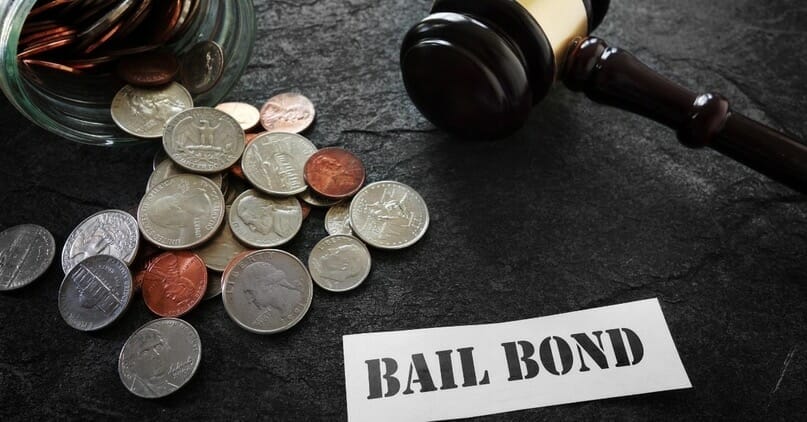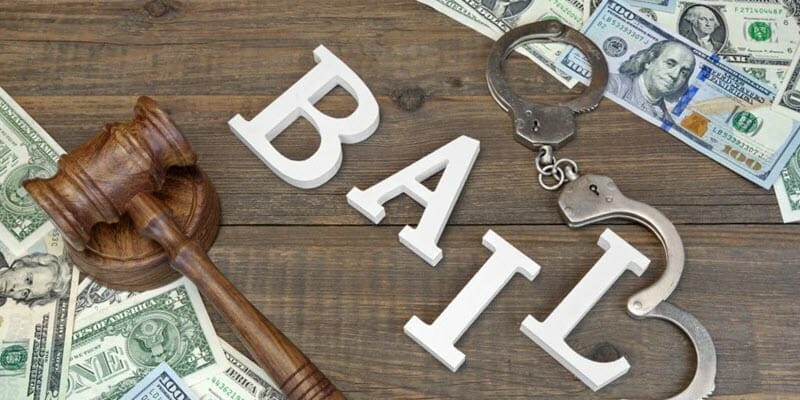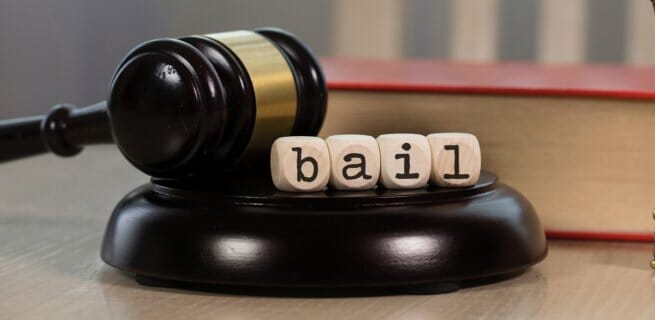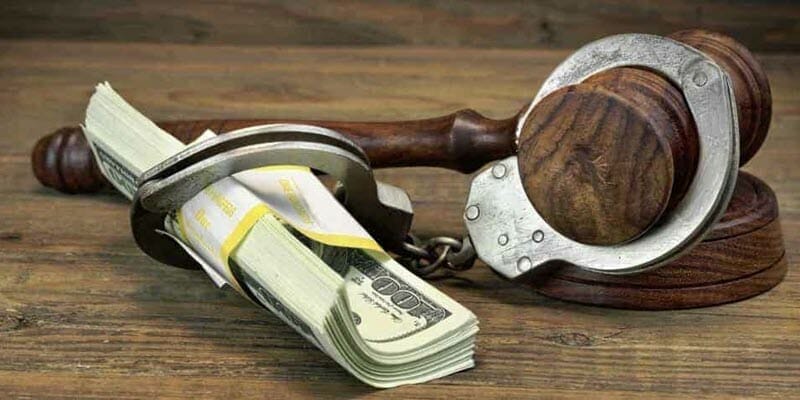
- Felonies
- *
- Misdemeanors
- *
- Drug/Narcotics Violations
- *
- Sex Offenses
- *
- Gun / Weapons Violations
- *
- Robbery
- *
- Burglary
- *
- Assault
- *
- Theft
- *
- White Collar Crimes
- *
- Domestic Assualt
- *
- Property Damage
- *
What are the 4 Types of Bail Bonds?
Once arrested, you have four different bail options for release from jail. Before your release, the judge must set your bail amount. Total bail amounts are decided based on several factors, including your current charges, criminal history, flight risk, and other extenuating circumstances.
Most people want to get out of jail as quickly as possible, but it's essential to remain patient throughout the process, as good behavior is more likely to get you granted bail.
Once the judge decides on your bail amount, you are one step closer to getting out of jail. We hope to help you understand the four types of bail bonds below. Understanding your options will make the process less frightening, allowing you to keep a level head.
4 Bail Bond Types and How They Work
Many people do not know there are actually different types of bail. You have options when it comes to getting out of jail. Some will be more attractive than others, but you may be limited, depending on your financial obligations and the judge's decision. You may be wondering about your options with federal bail bonds, immigration bail bonds, and even cash bail. When making a decision, consider the following.
Your Own Recognizance
A judge can grant a personal recognizance bond, also known as an OR bond. With this type of bond, you do not have to pay bail money to get out of jail. The judge releases you with your promise that you will return to court.
You may be granted OR if you have a minor charge, no criminal record, or are a long-time community resident. The judge will likely not offer OR if you have a violent charge or a lengthy criminal record. This is also sometimes referred to as a pr bond
Cash Bail Money
Once the amount is determined, you can pay it in cash. This bail process is the most accessible choice. However, if you choose this option, you will need to post bail in its entirety upfront.
The fact that you have to spend money to post bail puts a damper on the excitement. With some bail amounts rising into the thousands, most people do not have that kind of cash lying around to post bail.
The good news is that your friends and family can pool money together for posting bail. Someone could even get a loan on your behalf. Just remember, the court may investigate large sums of cash put up for posting bail.
Some court systems allow cash bail payments with credit cards, personal checks, and cashier's checks. The court clerk should inform you of your payment options. If you do not have the cash to post bail, you will have to choose another option. Thankfully, there are others.
Collateral Bail
Once the judge decides the bail amount, you can put up bond collateral to get out of jail. With property bonds, you can put up houses, land, vehicles, jewelry, and more.
Just like with cash bail, the collateral for property bonds will be returned to you as long as you show up for court and meet all the terms of your release. Once the case is settled, the property bond collateral is returned to you.
Surety Bonds Through a Bail Bondsman
The last option is to contact a bail bondsman for a surety bond. Surety bonds are not a free option, but they will save you money because you only have to pay a percentage of the bail while the bail professionals pay the rest. Bail bonds are a great option for those who don't have the cash to pay for their release.
For a one-time, non-refundable fee, the bail bond agency will get you or a loved one out of jail rapidly through a bail bond. Although there are no guarantees, a bail bonds company can usually get the inmate released within a couple of hours once the bail fees are paid.
Show Up for Court Dates!
No matter which bail option you choose, you must show up for all court appearances and meet the terms of your release. If you fail to appear in court, repercussions will follow.
First, the judge will dissolve the posted bail. If you pay with cash or collateral, it becomes the state's property. If you pay a bail bond company, they will keep your collateral for the bail bonds to pay the full bail amount.
Not only will you lose money, but you will also lose your freedom. The judge will release a bench warrant for your arrest. This arrest becomes a separate charge with different court dates. It is in your best interest to show up and face the judge.
We Are a Bail Bond Agency Here to Help
The stress sometimes feels overwhelming when either you or a loved one are going through an arrest. Bail bonds professionals like us understand your confusion and are here to help through bail bonds.
Let us help you navigate this process and get the answers you need about bail bonds. Contact us now for help and compassion with paying bail.







